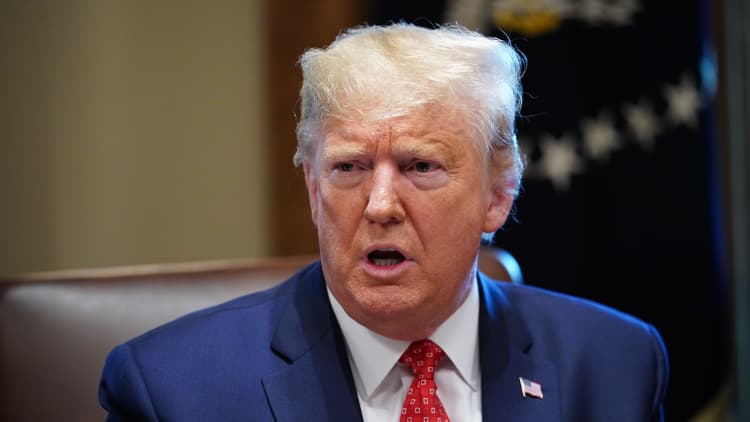
As relations between the U.S. and China continue to deteriorate, one immediate risk is a "military accident or operational miscalculation" between the armed forces of both countries, said former U.S. Army Lt. Gen. Karl Eikenberry.
"Do I worry about the risks that we have with the increasing geopolitical competition with China? ... the answer is very much yes," Eikenberry, also a former U.S. ambassador to Afghanistan, said Thursday.
Relations between the world's two largest economies have soured in recent months, as both countries slap additional tariffs on each other's goods amid a battle over trade that has spread to the tech space and concerns over national security. Despite multiple high-level trade talks, negotiations appear to have hit an impasse.
There have been several near military confrontations between the two nations, Eikenberry told CNBC's Sri Jegarajah at the Morgan Stanley Asia Pacific Summit in Singapore. A Chinese destroyer and a U.S. navy destroyer almost collided in the South China Sea late last year, he said.

In 2001, when a U.S. naval aircraft collided with a Chinese naval fighter and was forced to land in Hainan, said Eikenberry. Another incident was in 1996, when the U.S. accidentally bombed the Chinese embassy in Belgrade during one of the wars in the Balkans. However, none of that led to a "large scale war," he said.
"Those were very serious diplomatic incidents. But now — with the deterioration between the sides — should we have an incident like that today, I think the consequences will be much greater," said Eikeinberry.
Tech rivalry
Increasingly, the technological rivalry between the two countries is taking center stage in the trade war.
The U.S. has placed Huawei on a blacklist amid allegations that products of the Chinese telecom equipment maker could be used as a backdoor by the Chinese government to spy on Americans. Huawei has denied those accusations.
Nearly 30 Chinese entities have also been added onto the U.S. government's so-called Entity List, restricting these organizations from doing business with American firms.
So trade deals are no longer about balancing trade deficits its now much more about thinking about security.Karl Eikenberry.former U.S. Army Lieutenant General
Economists have predicted that with or without a U.S.-China trade deal, Chinese tech companies will be subject to tougher restrictions and greater scrutiny from the U.S.
Eikeinberry said that whether it's the current administration or the next administration, the U.S. "is looking at what are the security implications of economic exchange more broadly, with China and the rest of the world."
That means that products of Chinese companies like Huawei and ZTE will now have "national security implications," he said.

He pointed out that over the last 25 years, technology has advanced tremendously in the consumer sector, and during that same period of time, the domains of warfare have expanded so dramatically as well.
"We've gone from land and sea warfare, to air-to-space warfare, to cyber warfare. And with this expansion of the domains of warfare, with new technologies merging, that (may) have implications," said the former lieutenant general. "This is what I believe leads to what we call the securitization of economic exchange. So trade deals are no longer about balancing trade deficits its now much more about thinking about security."



